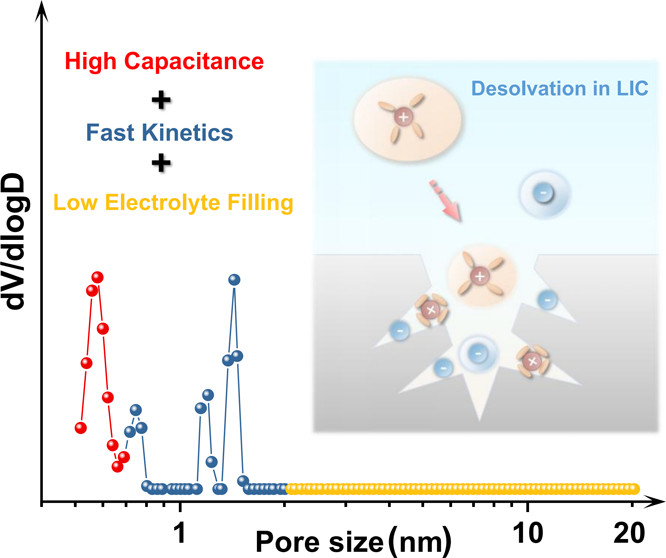祝贺颜冬等同学的文章
“Optimizing Ion Desolvation Process in Carbonate-Based Electrolytes for Enhanced Performance of Lithium-Ion Capacitors”
被 ACS Appl. Energy Mater. 接受发表!
Dong Yan, Dong-Qi Wang, Xiao-Ling Dong, Wen-Cui Li*. Optimizing Ion Desolvation Process in Carbonate-Based Electrolytes for Enhanced Performance of Lithium-Ion Capacitors. ACS Appl. Energy Mater., 2022, 5, 11, 13511-13519.

Abstract
Next-generation supercapacitors, lithium-ion capacitors (LICs), are generally limited by the much lower specific capacity of capacitive cathodes than that of the Li-insertion type anode due to the low capacitance contribution of solvated ions stored in large pores and the sluggish transfer of desolvated ions stored in small pores. Hence, a model system of porous carbons with a willfully tailored pore structure for the systematic study of capacitive cathodes is the key to further developing LICs. Herein, a series of porous carbons with tailored pore size distributions in 0.5−4 nm are synthesized through the dynamic template effect and molten salt etching of CuCl using L-glutamic acid as the carbon precursor. The electrochemical tests indicate the accessibility of desolvated ions (Li+ and PF6−) in 0.56 nm sized ultramicropores to contribute a high surface-area-normalized capacitance. Furthermore, the transfer kinetics of desolvated ions can be effectively accelerated by combining the utilization of 1-1.5 nm micropores without filling massive electrolytes in the pores. Finally, after matching the porous carbon cathodes with a hard carbon anode, the optimization of pore size distribution is proved to significantly boost the energy density of the device.

